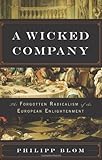Enlightenment understanding
Article by nic red
Enlightenment broadly means wisdom or understanding enabling clarity of perception. However, the English word covers two concepts which can be quite distinct: religious or spiritual enlightenment and secular or intellectual enlightenment. This can cause confusion, since those who claim intellectual enlightenment often reject spiritual concepts altogether.
In religious use, enlightenment is most closely associated with South and East Asian religious experience, being used to translate words such as (in Buddhism) nirvana, bodhi or satori, or (in Hinduism) moksha. The concept also has parallels in the Abrahamic religions (in the Kabbalah tradition in Judaism, in Christian mysticism or Gnosticism, and in the Sufi fitra tradition of Islam).In secular use, the concept refers mainly to the European intellectual movement known as the Age of Enlightenment, also called the Age of Reason referring to philosophical developments related to scientific rationality in the 17th and 18th centuries.
Enlightenment is man's release from his self-incurred tutelage. Tutelage is the incapacity to use one's own understanding without the guidance of another. Such tutelage is self-imposed if its cause is not lack of intelligence, but rather a lack of determination and courage to use one's intelligence without being guided by another.
Enlightenment and the understanding of good and evil
The man who wants to gain wisdom profits greatly from having thought for a time that man is basically evil and degenerate: this idea is wrong, like its opposite, but for whole periods of time it was predominant and its roots have sunk deep into us and into our world. To understand ourselves we must understand it; but to climb higher, we must then climb over and beyond it.
We recognize that there are no sins in the metaphysical sense; but, in the same sense, neither are there any virtues; we recognize that this entire realm of moral ideas is in a continual state of fluctuation, that there are higher and deeper co! ncepts o f good and evil, moral and immoral. A man who desires no more from things than to understand them easily makes peace with his soul and will err (or "sin," as the world calls it) at the most out of ignorance, but hardly out of desire. He will no longer want to condemn and root out his desires; but his single goal, governing him completely, to understand as well as he can at all times, will cool him down and soften all the wildness in his disposition. In addition, he has rid himself of a number of tormenting ideas; he no longer feels anything at the words "pains of hell," "sinfulness," "incapacity for the good": for him they are only the evanescent silhouettes of erroneous thoughts about life and the world.
About the Authorwww.bleetsheep.com
The American Enlightenment

A Wicked Company: The Forgotten Radicalism of the European Enlightenment

- ISBN13: 9780465014538
- Condition: New
- Notes: BRAND NEW FROM PUBLISHER! 100% Satisfaction Guarantee. Tracking provided on most orders. Buy with Confidence! Millions of books sold!
In A Wicked Company, acclaimed historian Philipp Blom retraces the fortunes of this exceptional group of friends. All brilliant minds, full of wit, courage, and insight, their thinking created a different and radical French Enlightenment based on atheism, passion, reason, and truly humanist thinking. A startlingly relevant work of narrative history, A Wicked Company forces us to confront with new eyes the foundational debates about modern society and its future.
List Price: $ 29.95 Price: $ 6.05


Comments
Post a Comment